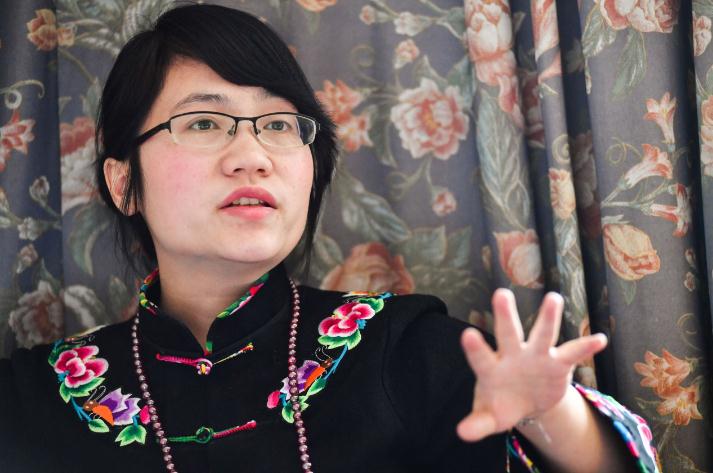Moving Mountains: NPC deputy describes how e-commerce is drawing young people back home in villages
Beijing Review by Liu Ting ,March 05, 2019 Adjust font size:

Hua Xi, a National People's Congress deputy (WEI YAO)
People envied Hua Xi's stable job with the town government of Wanshan, an impoverished mountain town in Guizhou Province in southwest China. So in 2015, when Hua, inspired by the news that e-commerce giant Alibaba was going to start a rural Taobao project in her hometown, quit her job to become an e-commerce entrepreneur, they couldn't fathom why she was throwing away a secure future.
Hua, today a National People's Congress (NPC) deputy, described the problems and potential of e-commerce in remote, inaccessible and underdeveloped areas in an exclusive with Beijing Review on the eve of the NPC annual session, which will open in Beijing on March 5.
She will talk about e-commerce at the session, proposing greater support to agricultural and industrial production. Her vision is to develop an entire industrial chain and deliver more local goods from mountainous areas.

Hua Xi, a National People's Congress deputy (WEI YAO)
Hua described the struggles she and other rural entrepreneurs like her face. In many areas, there are no factories and entrepreneurs have to hunt for resources. She would go to fairs or local farmers' home to source her products. Plus logistical costs are high and deliveries take a long time, putting off customers.
However, she learned from experience that startups don't have to sell goods outside the province at first. A larger local market is a good choice to save logistics cost.
In September 2015, Hua signed contracts with local special food merchants and several express companies to sell local sweet potato, honey and rice wine across the country, increasing local residents' income and introducing them to prosperity.
She has also created a social e-commerce platform with her friends, selling premium local goods through WeChat. The instant messaging app helped them sell more than 50,000 kilograms of grapefruit last year. The platform has 110,000 members and more than 5,000 distributors. Next, Hua plans to make live videos to develop the platform.
The best part is that young people, who would once leave the town for opportunities in the big cities, are coming back to start their own businesses. Hua shares her experience with them and banks on them to take more Guizhou goods out of the mountains.
61f0ed92-fbea-428c-bd5e-83ce0ffb104d.jpg)
